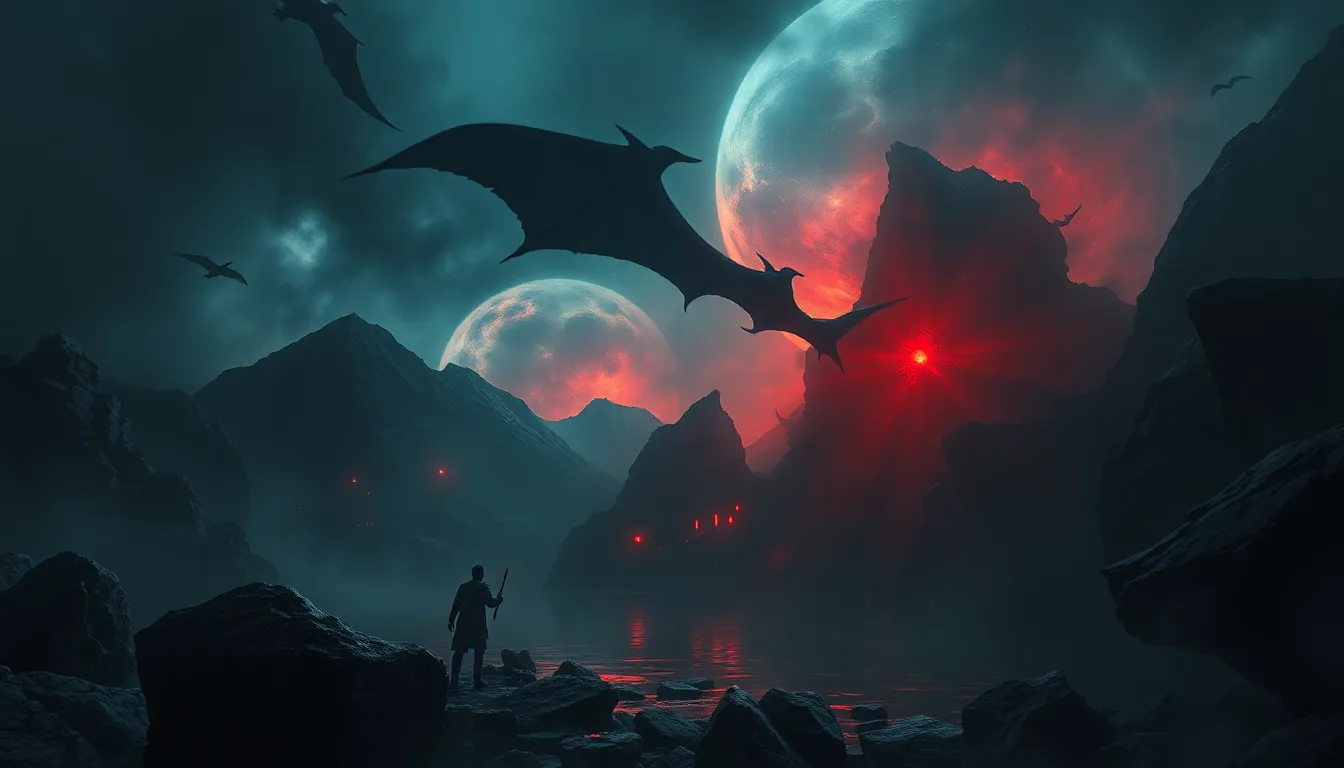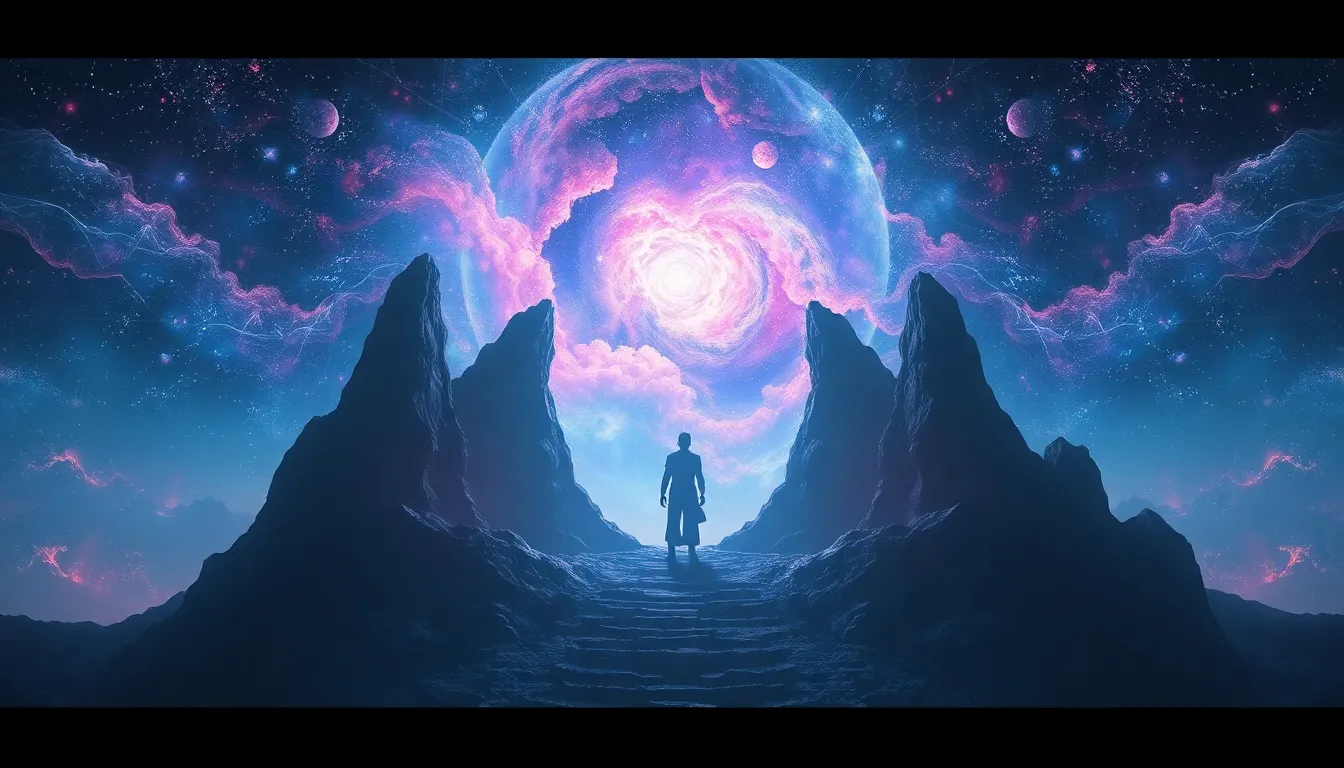Chasing Shadows: The Dark Side of Mythic Quests
Introduction: The Allure of Mythic Quests
Mythic quests have captivated the human imagination for centuries, serving as a powerful narrative device that transcends cultures and time periods. Defined broadly, a mythic quest is a journey undertaken by a hero to achieve a significant goal, often involving challenges that test their character and resolve. These quests are deeply woven into the fabric of storytelling and culture, embodying ideals of bravery, sacrifice, and transformation.
The allure of mythic quests lies in their ability to inspire and resonate with audiences. They often depict a hero who overcomes insurmountable odds, bringing hope and meaning to the collective human experience. However, beneath this surface of adventure and triumph lies a darker undercurrent that challenges the very essence of heroism.
The Hero’s Journey: A Double-Edged Sword
One of the most influential frameworks for understanding mythic quests is Joseph Campbell’s concept of the monomyth, or the Hero’s Journey. This structure outlines a series of stages through which a hero progresses, including the call to adventure, the initiation, and the return. While this journey often culminates in glory, it is not without its perils.
The psychological implications of heroism can be profound. The mantle of heroism brings with it a burden of expectations and responsibilities that can weigh heavily on individuals. As heroes face trials and tribulations, they may confront not only external foes but also their own fears and insecurities. This duality of strength and vulnerability reveals that the path of a hero is fraught with challenges that can lead to personal turmoil.
The Cost of Glory: Personal Sacrifices in Pursuit of the Quest
The pursuit of a mythic quest often demands significant personal sacrifices. Heroes may find themselves losing relationships, grappling with identity crises, and facing moral dilemmas that challenge their core values. This theme of sacrifice is prominent in various narratives, illustrating the high cost of glory.
- Relationships: Heroes frequently abandon loved ones or lose friendships due to their singular focus on the quest.
- Identity: The transformation required to fulfill the quest can lead to a loss of self, as heroes grapple with their new roles.
- Morality: The line between right and wrong can blur, forcing heroes to make difficult choices that compromise their ethics.
Case studies from literature and history highlight these sacrifices. For example, in “The Iliad,” Achilles’ pursuit of glory leads to the death of his close friend Patroclus, illustrating the personal cost of honor and revenge. Similarly, in modern narratives like “The Lord of the Rings,” Frodo Baggins endures immense personal loss and suffering in his quest to destroy the One Ring.
The Temptation of Power: Corruption in the Pursuit of the Quest
The quest for greatness can often lead to moral decay, as heroes are tempted by power and glory at the expense of their integrity. This theme is prevalent in many mythologies and modern narratives, illustrating how ambition can corrupt even the noblest of characters.
Examples abound, such as the tale of Faust, who sells his soul for knowledge and power, ultimately leading to his downfall. In contemporary stories, characters like Walter White from “Breaking Bad” exemplify the dangers of ambition unchecked by morality, where the pursuit of success results in devastating consequences.
The Shadow Self: Confronting Inner Demons on the Quest
Carl Jung’s concept of the “shadow self” refers to the unconscious aspects of one’s personality that are often repressed or denied. In mythic quests, heroes frequently encounter their shadow selves, confronting their inner demons as they navigate their journeys.
Characters such as Beowulf and Harry Potter illustrate the struggle against darker impulses. Beowulf faces not only physical foes but also the temptation of pride and vengeance, while Harry confronts his own fears and insecurities in his battle against Voldemort. These encounters serve as crucial turning points in their respective journeys, emphasizing the importance of self-awareness and acceptance.
Disillusionment: The Gap Between Idealism and Reality
As heroes pursue their quests, they often encounter a dissonance between their ideals and the harsh realities of life. This disillusionment can lead to profound insights or tragic outcomes, revealing the complexities of human existence.
Narratives like “The Great Gatsby” and “Moby Dick” showcase characters who embark on quests filled with hope, only to face unfulfilled expectations and bitter truths. These stories remind us that the pursuit of dreams may not always yield the desired results, and the journey itself can be fraught with disappointment.
The Role of Companions: Allies and Betrayers
The dynamics of camaraderie and betrayal are central to mythic quests, highlighting the importance of relationships formed along the way. Companions can serve as allies who provide support and encouragement, but they can also become sources of conflict and deception.
The consequences of trust and betrayal are vividly illustrated in stories such as “The Odyssey,” where Odysseus must navigate the complexities of loyalty among his crew, and “Game of Thrones,” where allegiances shift and betrayals abound, often leading to tragic consequences for the questing heroes.
Cultural Reflections: How Myths Mirror Societal Fears
Mythic quests often reflect the societal fears and anxieties of the cultures from which they emerge. These stories serve as cautionary tales that explore the darker aspects of the human experience, shedding light on universal themes of conflict, power, and morality.
Various cultures have their own mythologies that encapsulate these fears. For example, the Greek myth of Icarus warns against hubris and the dangers of overreaching ambition, while the Norse saga of Ragnarok reflects fears of inevitable destruction and chaos. By examining these tales, we gain insight into the collective consciousness of societies throughout history.
Contemporary Interpretations: Mythic Quests in Modern Media
In contemporary media, mythic quests are reinterpreted through films, books, and video games, often highlighting dark themes that resonate with modern audiences. These adaptations explore the complexities of heroism in an increasingly ambiguous moral landscape.
Works like “The Witcher” series and films such as “Mad Max: Fury Road” incorporate elements of mythic quests while addressing contemporary issues such as survival, morality, and the human condition. The dark themes prevalent in these narratives reflect a society grappling with its own shadows and uncertainties.
Conclusion: Embracing the Shadows in Our Own Quests
The exploration of mythic quests reveals that while they can be sources of inspiration and hope, they also expose the darker aspects of the human experience. The lessons learned from these narratives encourage us to reflect on our personal quests and the shadows we may encounter along the way.
By embracing our own challenges, sacrifices, and the complexity of our motivations, we can emerge from our quests not only as heroes but as individuals who are more aware of the multifaceted nature of life. In the end, it is in the confrontation of our shadows that we find the true essence of our journeys.



